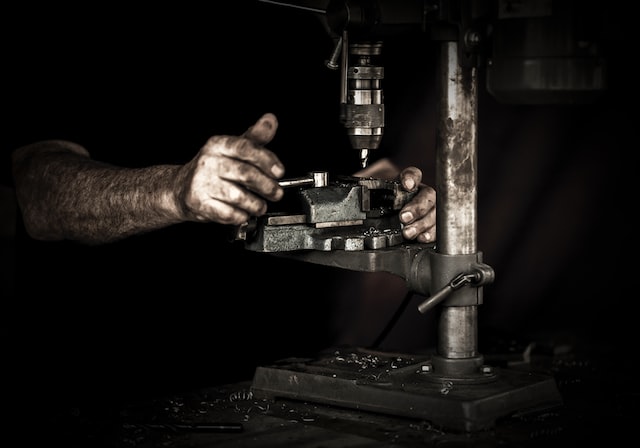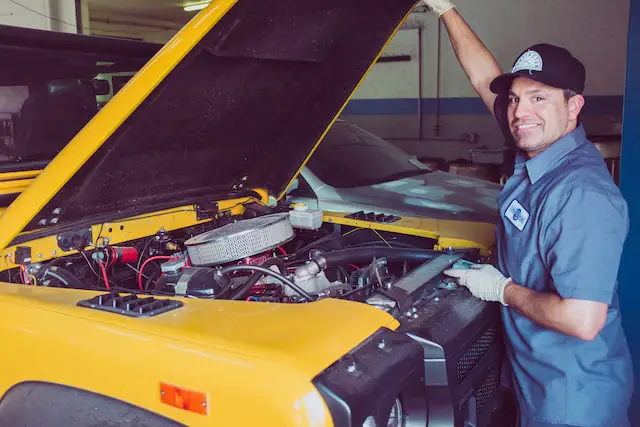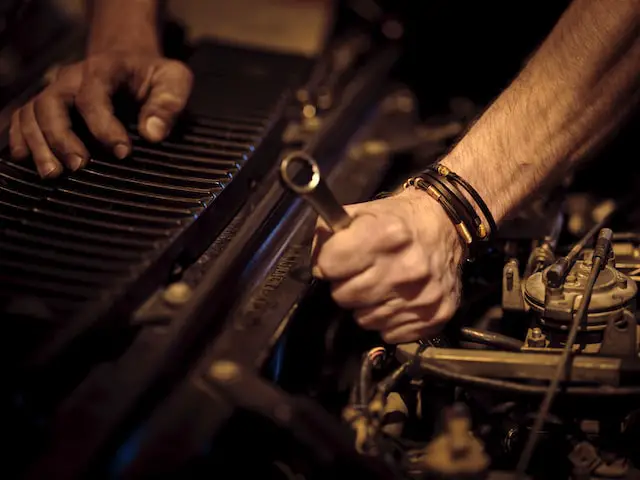Mechanics and machinists both specialize in working with machinery, but each performs different tasks. A mechanic is typically involved in the repair and maintenance of machines while a machinist specializes in building and designing machinery.
Job Duties
A mechanic is a skilled tradesperson who repairs and maintains machinery. A machinist is a skilled tradesperson who manufactures parts and components to specifications.
The main difference between a mechanic and a machinist is the focus of their work. A mechanic focuses on repair and maintenance, while a machinist focuses on manufacturing. Both occupations require a high level of skill and training.
Education and Training
The main difference between a mechanic and a machinist is the level of training and education they have received. Mechanics typically have a high school diploma or equivalent, while machinists usually have completed an apprenticeship or have a two-year degree in machining technology.
Salary and Job Outlook
Mechanics make a median salary of $36,600 per year, while machinists make a median salary of $50,700 per year.
Job outlook is also much better for machinists than mechanics. The Bureau of Labor Statistics projects that there will be a 12% growth in jobs for machinists between 2016 and 2026, while there will only be a 5% growth in jobs for mechanics during that same time period.
Are a machinist and mechanic the same thing?
A mechanic is someone who works on repairing and maintaining vehicles. A machinist is someone who operates and maintains machines. The two occupations are similar, but there are some key differences.
A mechanic typically has a more general knowledge of vehicle systems, while a machinist has a more specialized knowledge of machines. A mechanic may be able to troubleshoot and repair a wide variety of vehicle issues, while a machinist is more likely to be focused on operating and maintaining a specific type of machine.
Both mechanics and machinists use tools to do their job, but the type of tools they use can be quite different. A mechanic is more likely to use hand tools, while a machinist is more likely to use power tools.
So, while there are some similarities between mechanics and machinists, there are also some important differences. If you’re interested in pursuing either occupation, it’s important to understand the distinctions between them.
What does a machinist do?
(Photo by Adi Goldstein on Unsplash )

A machinist is a skilled tradesperson who uses machine tools to create or modify parts, instruments, and other objects. Machinists typically work in manufacturing plants, but they may also be employed in repair shops or in the research and development departments of companies that produce machine tools.
The most important tool in a machinist’s arsenal is the lathe, which is used to shape metal objects by rotating them against a cutting tool. Other common machine tools used by machinists include mills, drilling machines, and grinders. In addition to operating these machines, machinists must also be able to read and interpret blueprints or other engineering drawings to determine the dimensions and tolerances of the parts they are creating.
While many machinists specialize in one type of machine tool or another, others are generalists who are proficient at using all of the different types of machine tools. In either case, becoming a skilled machinist requires many years of training and experience.
What does a mechanic do?
A mechanic is responsible for the maintenance and repair of vehicles and machinery. This can include engines, transmissions, drivetrains, electrical systems, and more. A machinist is a specialist who uses machine tools to create or modify parts. This can involve anything from cutting and shaping metal to creating custom components.
Job description of mechanics and a machinists
The main difference between a mechanic and a machinist is the type of machines they work on. Mechanics typically work on automobiles, while machinists work on larger machines, such as those used in manufacturing.
Some other differences between mechanics and machinists include:
- Mechanics are more likely to do repair work, while machinists are more likely to do preventive maintenance or set up and operate machines.
- Machinists usually have more formal training than mechanics.
- Mechanics typically work in shops, while machinists may work in shops or factories.
Job Outlook of mechanics and a machinists
As a mechanic, you can expect to find employment in a variety of settings, including repair shops, auto dealerships, and service stations. Many mechanics are self-employed. The job outlook for mechanics is good, as the number of vehicles on the road is expected to continue to rise.
As a machinist, you will typically work in a manufacturing setting, operating machines that cut or shape metal. The job outlook for machinists is also good, as the demand for manufactured products is expected to continue to grow.
Pros and Cons of of mechanics and a machinists
When it comes to choosing between a mechanic and a machinist, there are pros and cons to consider. On the plus side, mechanics are generally less expensive than machinists and they can often do the work more quickly. Additionally, many mechanics already have the tools and equipment needed to do the job. On the downside, however, machinists tend to be more precise in their work and they may have access to better quality tools and machines.
What are the types of mechanic?
(Photo by Kenny Eliason on Unsplash )

A mechanic is a tradesman who maintains and repairs machinery. A machinist is a specialist who fabricates and assembles parts for machinery.
There are several different types of mechanics, each specializing in a particular area of machinery maintenance and repair.
- Automotive mechanics work on cars and other road vehicles.
- Aircraft mechanics work on airplanes and other flying machines.
- Marine Mechanics work exclusively on boats and other watercraft.
- Industrial mechanics, meanwhile, maintain and repair factory equipment.
Is mechanics a good career?
There are many reasons to consider a career in mechanics. Mechanics are in high demand, and the job outlook for mechanics is very good. The median pay for mechanics is $36,600 per year, and the job growth rate for mechanics is expected to be 7% from 2018-2028.
Mechanics are highly skilled workers who are responsible for repairing and maintaining vehicles. They use a variety of tools and equipment to diagnose and repair problems with engines, transmissions, brakes, and other vehicle systems. Mechanics must be able to read and understand complex technical manuals and have a thorough knowledge of how vehicles work.
A career in mechanics can be very rewarding. Mechanics have the satisfaction of knowing that they help keep people safe on the roadways and that their work makes a difference in people’s lives. If you are interested in a career in mechanics, there are many schools that offer training programs that can help you get started.
What is the highest level mechanic?
There are many different types of mechanics, but the highest level mechanic is the master mechanic. A master mechanic is someone who has a complete understanding of how machines work and can troubleshoot and repair them when they break down. They usually have years of experience and often have formal training from a trade school or community college.
Do a machinist use math?
A machinist is a skilled tradesperson who uses machine tools to create or modify parts, usually made of metal. Machinists must have a strong understanding of mathematics in order to be able to calculate dimensions and tolerances.
Is being a mechanic stressful?
There is a lot of debate over whether or not being a mechanic is a stressful occupation. Some people believe that it is, while others maintain that it isn’t. The truth is, like most things in life, it likely varies from individual to individual.
For some mechanics, the job may be relatively low-stress. They may work for a company where they have regular hours and aren’t required to do much overtime. They may also have a good working knowledge of the vehicles they’re working on, which can make repairs easier to handle.
However, other mechanics may find their job to be quite stressful. They may work long hours, often on call, and deal with challenging repairs on a daily basis. They may also feel pressure from their superiors to work faster and produce more results. Regardless of which side of the fence you fall on, there’s no denying that being a mechanic can be a tough gig.
Featured Image By – Photo by christian buehner on Unsplash








